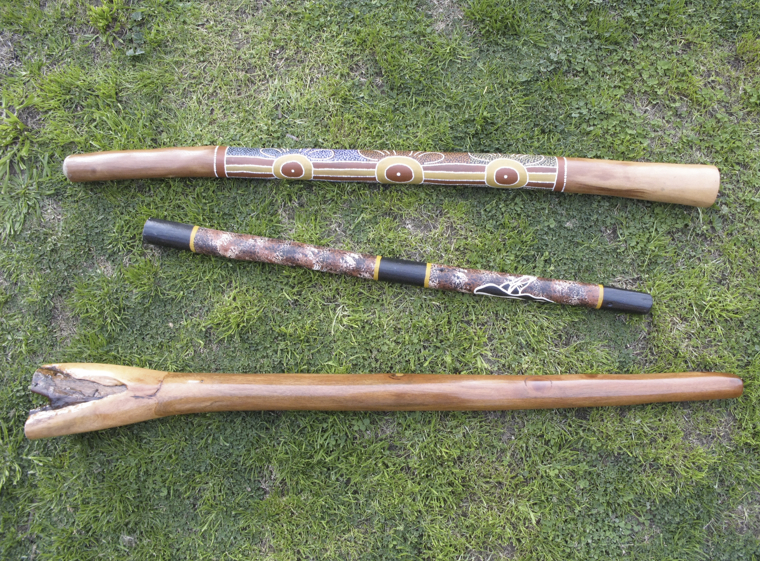The didgeridu
There are a number of theories about the origin of didjeridu, one of which is that it is an Irish borrowing. Some people may not be convinced that the name of the instrument is a white person’s attempt to capture the sound, although the earliest citations from 1918 and 1919 are clear that this is what lies behind the name. ‘It produces but one sound – didgerry, didgerrry, didgerry – and so on ad infinitum’. Smiths Weekly 1918.
The didjeridu was an instrument of Arnhem Land, the Kimberley and the northern Pilbara so there were none present in the early days of the colony in Sydney Cove. Now they are everywhere but originally they were confined to the very top end of Australia. The Irish may have been a significant proportion of the Sydney settlement but they were not a significant population in northern Australia where the transfer of this name for the instrument must have taken place if we believe this theory.
I am as happy to accept Irish origin as I am to accept Indigenous origin or British dialect origin, but I would like some evidence. It is not enough to offer a perceived resemblance between a word in English and a word in some other language. There must be a plausible context and, preferably, some citational evidence to support the link.
Without such backup, the following seems to me to be irritatingly fanciful:
As a counter-argument, she [Dymphna Lonergan] notes an Irish word dúdaire meaning “trumpeter or horn-blower”, as well as Irish and Scots-Gaelic dubh, “black” and dúth, “native”. She observes that Irish and Scots-Gaelic speakers first encountering the instrument might well have called it dúdaire dubh or dúdaire dúth (pronounced respectively “doodereh doo” or “doojerreh doo”).
This assumes that the Irish transferred the word from ‘trumpet player’ to the instrument being played, which is not impossible. But when did these Irish and Scots-Gaelic speaking people encounter a didgeridu, choosing to describe it as a native trumpet-player? There is no plausible context.
Professor Nicholas Evans offers an alternative origin in his comment on Diane Lonergan's theory:
When people blow the instrument, in Dalabon and Kunwinjku-speaking areas, they speak or mouth into the didgeridoo a type of word which is written as follows in the local orthography: didjmrrooo, didjmrroo didjmrroo. Those words also get used when someone is telling a story and wants to sing, or represent, the sound of the instrument being played. The stretch often finishes up with a simple didj! to represent the last sound it makes before fading to silence. I think this is a practice that precedes any contact with English.
This seems to me to answer the nagging doubt that we might have about the likelihood of European settlers, not known for flights of onomatopoeic fancy except in poetry or in baby talk, coming up with this representation of the sound of the didjeridu. But if they were offered it from an Indigenous language, then they might take it up. It is a short step from the word representing the noise that the instrument makes to the name of the instrument itself.
I understand the emotional reasons for wanting a link between Irish and Australian English but more is needed by way of evidence to support it.
